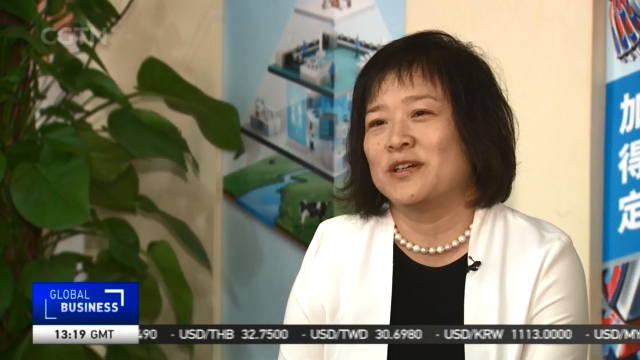
21:49, 31-Aug-2018
Chinese Women in the Workplace: The choice between family and career
Updated
21:19, 03-Sep-2018
03:04

A 2018 report on Chinese women in the workplace has found that many are making a difference through their careers, while also striving to balance both work and family. Yet many women are still faced with little choice but choosing between the two. Now, many young women of the new generation, are vowing to stay single or delay marriage for the sole reason of career development. Let's have a closer look.
Should women choose family or career development? This is the question on the mind of many Chinese women. To them, the current social environment in China does not allow these two to coexist as it should. But according to Sarah Liu, one of the pioneers in the Chinese communication industry, it wasn't always like this.
SARAH LIU, FOUNDER & CEO ASSYRIA INTEGRATED MARKETING CONSULTANT "I started my own business just a year after college. I didn't think that much actually. We didn't have a lot to be afraid of when we were in our 20s. I think it's a generational thing. People from the 70s, we had less competition then, and more opportunities. The Chinese economy was growing really fast back then."
Sarah started her business with full support from her husband. In her mind, she and her fellow entrepreneurs also enjoyed more understanding from their families, possibly more than what the new generation of Chinese women have.
SARAH LIU, FOUNDER & CEO ASSYRIA INTEGRATED MARKETING CONSULTANT "I started my company with 15 thousand US dollars. It wouldn't be possible now. I think because there were more opportunities back then, your family would think it's worth trying out. Now with more competition, it's harder to predict if you will succeed or not, for you or your family."
It seems like with growing market competition, Chinese women are becoming more driven at work. But in reality, there is also an avoidance, or at least anxiety, towards marriage or having a family.
SUN LINGSHAN, CHO BEIJING FOUNDER ELECTRONICS "It's just natural that women get married and have kids. So we need to normalize it in the workplace, to embrace it, not demonize it, or avoid it. For us, as HR and employers, what we need to focus on is to offer women more support, policy-wise and emotionally, and give them a sense of belonging. For my company, in the past four years, the number of women employees has increased by 4 percent. Of course, the reality still exists, that there are more men than women, at least in the high-tech industry. But we are heading towards the right direction. I think we need to recognize what's gender equality in the workplace. It should be the standard, same evaluation system. Of course women would have a stagnant period when they have babies. But it's not necessary that their career development in the long term is tanked."
Anxiety is high for the young generation of Chinese women, with pressure coming from work, family and society. But balancing the two is not mutually exclusive. In the end, it's not a zero-sum game.

SITEMAP
Copyright © 2018 CGTN. Beijing ICP prepared NO.16065310-3
Copyright © 2018 CGTN. Beijing ICP prepared NO.16065310-3